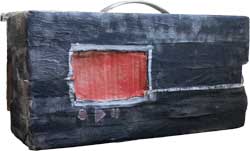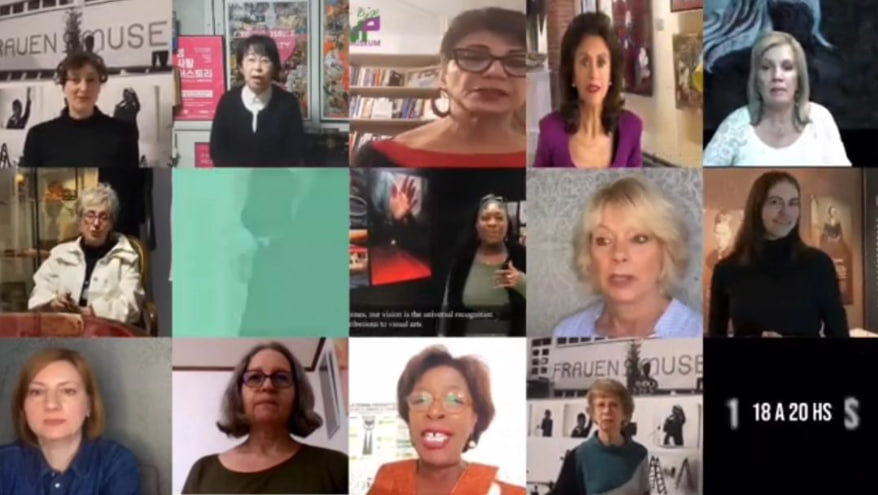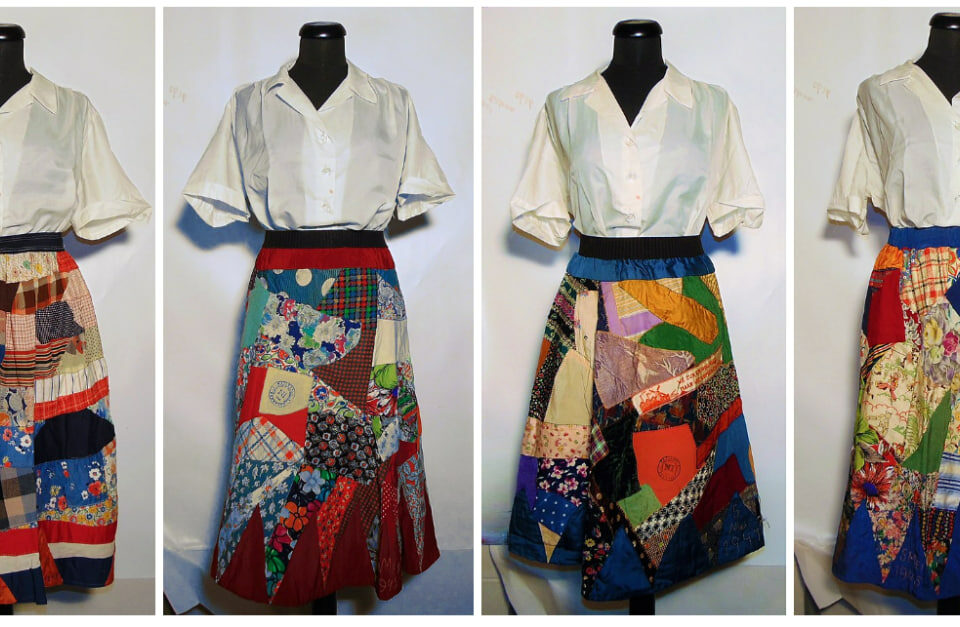Andrei Sakharov Prize 2018 Recipient: Narges Mohammadi
April 10, 2018From Evin With Love
June 2, 2018I received the cardboard tape recorder, handicraft by Nazanin Deyhami, inmate in Evin Prison’s women’s block, two weeks after her death. At the time of her passing, Nazanin was only twenty-nine years old. The cause of her death in November 2017 was an asthma attack brought on by heavy pollution in Tehran.
At the height of the tumultuous Green Movement for democracy, Nazanin was twenty-one and studying dramatic arts at Tehran University. During that time, I saw her once or twice at gatherings of women activists. She, with sad, questioning eyes, was arrested during the government’s suppression of the demonstrations. Sometime later, in the winter of that year, after a period of pursuits and escapes, I, too, was arrested. I was in Evin Prison when I heard that Nazanin had been released on bail pending her trial. I did not see her again, and a year later, I left Iran.
In 2011, I learned through the media that Nazanin had been found guilty of civil disorder and acting against national security and was incarcerated in the women’s communal block at Evin. A year later, news came of her release, but she had been expelled from university and banned from continuing her education.
Nazanin was only twenty-three years old when she was released from prison. Her extraordinary talent in translation and her command of the Persian language helped her endure the isolation of being homebound and she set out to translate plays and works of literature. The fruits of that seclusion were the translations of seven books from English and German by writers such as Lucy Kirkwood, Barbara Park, Tom Stoppard, and Plinio Apuleyo Mendoza.
The cardboard tape recorder belongs to the time when in prison Nazanin single-mindedly decided to stage Ariel Dorfman’s play, Death and the Maiden. And for that, she needed a tape recorder as a prop.
Her block mates have many memories of that play. Nassrin Sotoodeh recalls, “[Nazanin] staged Ariel Dorfman’s play for us with the limited resources available in prison. Death and the Maiden and a tape recorder made from cartons …” Nazanin needed the tape recorder for the crucial scene when Paulina Salas, who had been raped by her interrogators while a political prisoner in a Latin American country, comes face to face with the sadistic doctor who had led her accosters, and she records his confession. “Nazanin expertly staged the play with performances by other prisoners,” Sotoodeh adds. “This is that tape recorder …”
I have turned these memories over in my mind a hundred times and thrashed against the wall of torment. And in the end, I came to speak, but only these words rolled off my tongue: “The maiden who herself became death.”
Time passed. My disbelief of Nazanin’s death and the wonder and pain I had seen in her eyes stayed with me and drove me to repeatedly contact her friends. Pity that their response was only anger and silence stemmed from anger. And so, I turned to her prison mates. Shiva Nazar-ahari, who was one of the actors in the play, recalled, “For Death and the Maiden, we needed a tape recorder. Nazanin, with her marvelous creativity used a piece of cardboard, which I have no idea where she had found, to make something that looked like a tape recorder and used a brush to paint it black. For it to have some weight as we held it during the play, she cut out the back and put one or two exercise weights in it.”
Nazanin made the guns they needed with pieces of wood and painted them, too, Shiva explained. “She also designed and made posters and handwritten invitations and distributed them to all the girls in the block. One invitation per person … She gave color to all the gloom and oppression and transformed lifeless objects into instruments meant to become memories …”
Shiva’s recollections ended, but the memory of Nazanin that has stayed with me is only one thing—her eyes! Her pained, questioning eyes fixed on the persevering activists of the women’s movement. Eyes that kissed my eyes.
Mansoureh Shojaee
Translator: Sara Khalili






